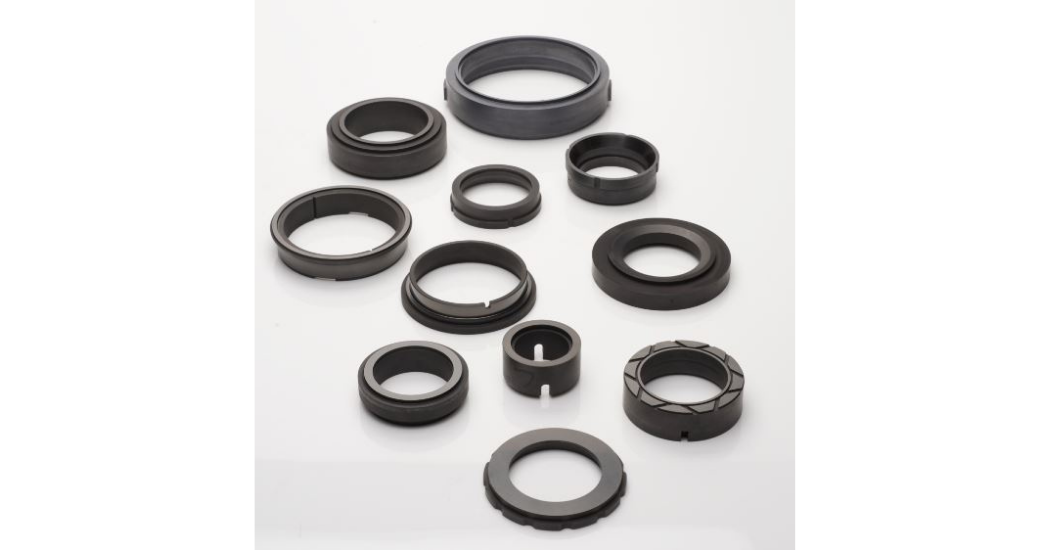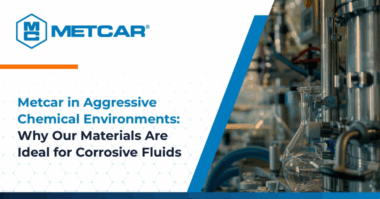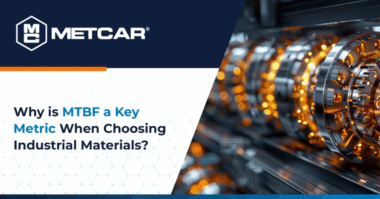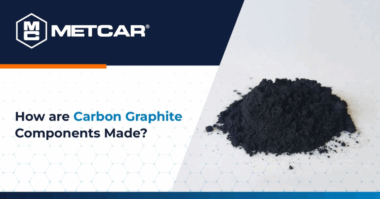Metcar Grade M-444 is considered to be the most blister resistant carbon-graphite grade available. Metcar’s high intensity molten impregnation process results in Metcar Grade M-444 having the lowest available porosity of any antimony impregnated grade.
Blistering of carbon-graphite seal faces occurs most often when sealing low viscosity oils in process that involve thermal cycling. The thermal cycling can be caused by process heat or by localized frictional heat generated by the rubbing of the seal face against the counter face. Most mechanical seal experts attribute blistering of carbon-graphite seal faces to the small amount of available micro porosity. Low viscosity oil can seep into this available porosity. If the oil is heated, it can volatilize and expand rapidly. The rapid expansion at a localized hot spot can lift up the polished surface on a carbon-graphite seal ring and cause a blister. Blisters are self-perpetuating because as a blister is formed, pressure in increased over the blister and more frictional heat is generated at the location of the blister.
Resin impregnated carbon-graphite grades normally contain a small amount of available porosity. This is because most thermal setting resin shrinks slightly when they are cured. Even though the available porosity in the carbon-graphite base material might be completely filled with liquid resin during the impregnation process, the shrinkage of the resin during curing normally causes slight porosity. The high coefficient of thermal expansion of thermal setting resins also contributes to the reduced blister resistance of resin impregnated grades. Resin impregnated grades will expand more at a localized hot spot.
Most metal impregnated grades also have a small amount of available porosity. This is because most metals shrink as they cool after solidifying. Even if all the available porosity is filled with molten metal during the impregnation process, the thermal contraction of the metal will create a small amount of available porosity.
However, antimony metal has an unusual characteristic. It expands as it solidifies or freezes. This expansion almost completely counteracts the thermal contraction of antimony as it cools to room temperature. This is the reason why antimony impregnated grades have very low available porosity and therefore have excellent blister resistance.
The best counter face material for blister resistant seals is solid, sintered, silicon carbide. This counter face material has low available porosity and high thermal conductivity (about 30% higher than tungsten carbide).
About Metallized Carbon Corporation
Since its inception in 1945, Metallized Carbon Corporation has been manufacturing high-quality, dependable bearing solutions for severe operating environments. With over 50 years of Application Engineering experience, Metallized Carbon offers the field expertise and data necessary to provide The Solid Choice for Lubrication® in a wide variety of industries, supplying completely machined components as well as materials for customer machining. Metallized Carbon is ISO certified and produces the Metcar brand of solid, oil-free, self-lubricating materials.
For additional information about the company and its services, please visit us online at www.metcar.com
Read more about Metcar’s impregnated, Carbon-Graphite!




